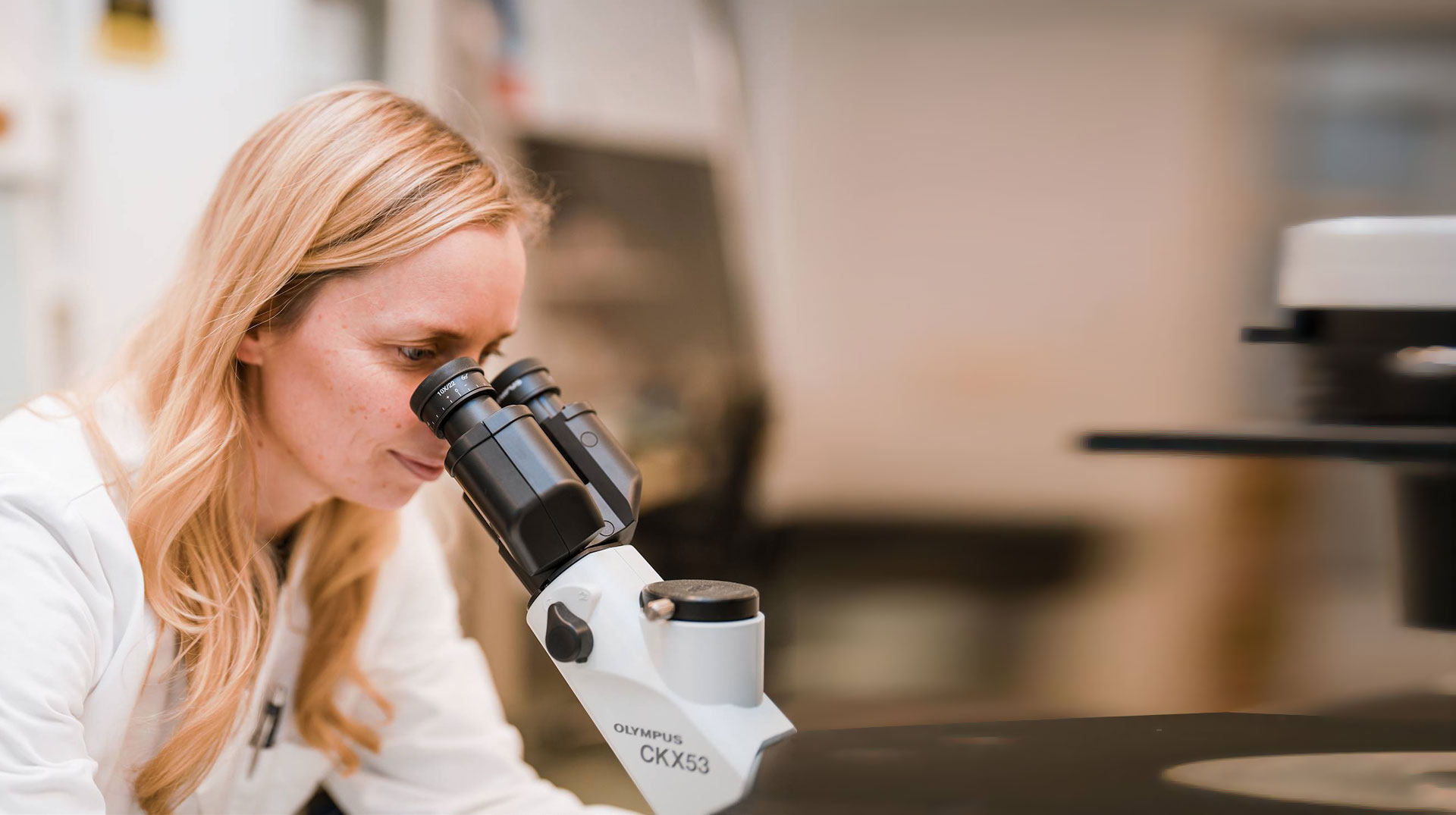
Clinical trials
Bexmab – HEMATOLOGICAL MALIGNANCies
Investigating Bexmarilimab in hematological malignancies
Faron’s current priority is its Phase I/II BEXMAB trial, investigating the safety, tolerability and preliminary efficacy of bexmarilimab in combination with standard of care therapies, azacitidine and other hypomethylating agents in relapsed/refractory myelodysplastic syndromes (MDS) and relapsed/refractory acute myeloid leukemia (AML) and chronic myelomonocytic leukemia (CMML).
Addressing an urgent need
Relapsed/refractory AML and MDS have extremely poor survival rates and viable treatment options. The majority of leukemias develop in patients over 60 years of age and the long-term survival (meaning 5-year survival, the definition of cure in AML) has stalled at 30 per cent.
Novel approaches such as immunotherapy could potentially help, especially for patients over 60 years of age who cannot tolerate intensive chemotherapies and for patients who relapse without effective therapies available.
Powerful indication of therapeutic potential
Latest data from the BEXMAB trial is a powerful indication of the therapeutic potential of bexmarilimab in hematological malignancies with bexmarilimab well tolerated across the trial and efficacy signals across all patient cohorts and doses in combination with azacitidine.
In the most recent data readout, 80% of patients treated with bexmarilimab + azacitidine doublet achieved objective responses and medial overall survival was 13.4 months. In August 2024, FDA Granted Fast Track Designation for bexmarilimab in r/r MDS and in December 2024, MHRA awarded bexmarilimab an Innovation Passport for the treatment of r/r MDS and gave approval for the BEXMAB trial to be conducted also in the UK.
MATINS – First in Human, Single agent
Promising antitumor activity as a single agent in late-stage solid tumors
The MATINS (Macrophage Antibody to Inhibit Immune Suppression) trial was Faron’s first-in-human Phase I/II single-agent study, investigating the potential of bexmarilimab monotherapy in ten advanced, treatment-resistant late-line solid tumor types.
Trial generated a wealth of positive data on bexmarilimab efficacy, dosing and biomarker, providing clinical evidence of treatment benefit from bexmarilimab and a derisked safety profile for the immunotherapy candidate.
The trial also provided highly encouraging evidence that macrophage conversion in the tumor takes place after bexmarilimab administration, leading to increased interferon gamma (IFN-ɣ) signalling and coinciding with treatment benefit. Latest data showed a three-fold longer survival for patients achieving disease control, attributed to a bexmarilimab-induced IFN-ɣ increase leading to significant survival benefit. Patients with disease control had a median overall survival of 14.9 months, and patients without, 4.4 months.
Planned Bexmarilimab combination studies in solid tumours
BLAZE – Can bexmarilimab onvercome PD-1 resistance?
Resistance to first-line immunotherapy in NSCLC and melanoma is very common. Targeting of tumour associated macrophages may overcome resistance. Response to bexmarilimab + anti-PD-1 in this setting will represent proof-of-concept of reversal of resistance. In the study initial priming is planned to be made with bexmarilimab 7 days prior to bexmarilimab+ PD1 combo. Biomarker intense to provide translational correlates of phenotypic macrophage switch and immune activation. Investigator Initiated Trial.
BEXAR – Can bexmarilimab turn cold tumors hot in sof-tissue sarcomas?
Early experiences with immune checkpoint inhibitors (ICIs) in clinical soft tissue sarcoma (STS) trials have been disappointing so far. These tumors are commonly regarded as “cold” owing to an immunosuppressive tumor microenvironment (TME) rich in M2-like macrophages as well as frequent expression of Clever-1. Interestingly, studies on human cancer cohorts have revealed marked associations between Clever-1-positive macrophages and a poor response to chemotherapy. Clever-1 inhibition in vitro induces anti-tumor macrophages, and combining chemotherapy with an anti Clever-1 antibody significantly increases survival of mice with established peritoneal disease in two syngeneic models of cancer. These observations suggest that targeting Clever-1 in immune cells may improve chemotherapy response in cancer patients by turning primary refractory STS tumors more sensitive to chemotherapy. Investigator Initiated Trial.
MATINS-02 – Can bexmarilimab onvercome PD-1 PRIMARY RESISTANCE AND EXPAND THE POPULATION OF PD-1 RESPONDERS?
Results with PD-1 inhibitors have been disappointing in immunologically cold tumors (such as gastric, gallbladder, cholangio carcinoma and ER+ breast cancer). Bexmarilimab can potentially turn primary refractory (cold) tumors sensitive to PD-1. This study will also validate prospectively the use of intratumoral Clever-1 positivity (by immunohostochemistry) as a predictive biomarker for treatment benefit? Faron Sponsored Trial.
